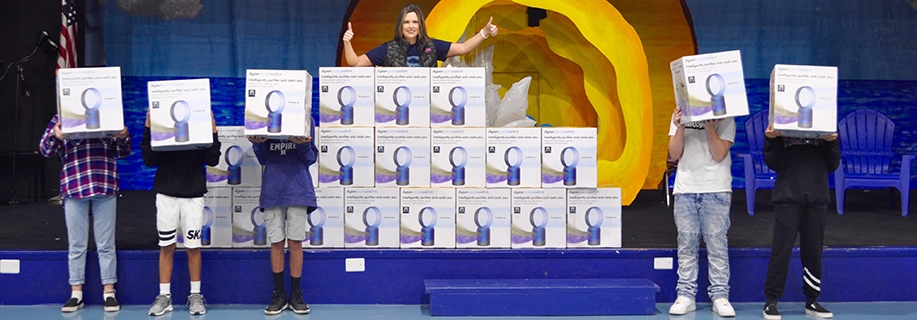by Editorial Staff | December 29, 2019
- Indoor Air
- Natural Disasters
This year's wildfire season in California was another one for the record books, with over 6,872 recorded fires and an estimated 253,321 acres of burned land, according to Cal Fire and the U.S. Forest Service. In addition to the obvious devastation that wildfires leave in their wake, the smoke from these fires creates unhealthy air quality conditions—especially for those trying to manage lung diseases like asthma or COPD.
The North Bay was one of the areas hit hardest. At times, the air pollution was so poor that many area schools and businesses had to completely shut down until things cleared up. Red Flag days have become commonplace, as the Bay Area Air Quality Management issues these alerts to warn everyone that air quality will only worsen as the day continues. They urge residents to limit their time outside and stay indoors as much as possible. While this alert helps protect residents from outdoor exposure, poor air quality can easily travel into our indoor spaces – including homes, schools and workplaces. In addition, as wildfires intensify and air pollution travels greater distances, many areas are at risk even if they are further away from the flames. For the past three years, the American Lung Association and Dyson have teamed up to bring cleaner air to communities affected by annual wildfires. This year, they delivered 200 air purifiers to schools in Northern and Central California to help students get back to the classroom without the fear of breathing in toxic air.
One school that benefited was Knightsen Elementary, a K-8 school that serves a farming community in the Bay Area and is surrounded by agricultural farmland. Students and staff in the 100-year-old school suffer from bad air quality for a number of reasons including an outdated air filtration system and an open-air classroom design that requires children to travel outside to get from class to class. It also sits at the bottom of a bowl-like area, so when major wildfires occur, the smoke rolls in and settles. Even without wildfires contributing to the air pollution, the school's location in the middle of farmland means that farm equipment and trucks that haul supplies and crops emit diesel exhaust every day.
Carrie Nash, American Lung Association Executive Director for Northern California traveled to Knightsen to personally distribute air purifiers to each and every classroom of the school. "I had the opportunity to speak with one classroom about air pollution and why we were delivering the air purifiers. I asked if anyone knew someone who has asthma or have asthma themselves and more than half of the kids raised their hands. That's a lot for one class. A few kids that identified as having asthma explained that on Red Flag days, even inside, they still had a very hard time breathing at school. They were looking forward to having a classroom where they wouldn't have those problems."
One brave girl even shared her experience having pneumonia and asked if the air purifiers would help her too. "I tried to explain that when you are recovering from pneumonia, your lungs are in a weaker state, so if they are exposed to pollution, you are more likely to have problems which is why it is more important for her to stay in a clean air environment," Carrie said. Overall, the reception was overwhelmingly positive, as the staff and students were excited to finally be able to get back to teaching and learning free of breathing problems.
Unfortunately, the struggle is far from over. Wildfires are becoming a new normal in California. "Within the last three years, we have had major devastation. Because we have such significant drought years, the fires have been worse than ever and experts agree that they are not going away any time soon," Carrie explained. "Wildfires have been taking out entire cities, just gone." In addition, over the last year, California has had a few weeks where the air quality was declared the worst in the world according to the World Air Quality Index.
The Lung Association is working hard to support steps to clean up air pollution, including addressing climate change that increases the threat of wildfires.
Learn more about how to protect yourself and your family from wildfires on our website.
Blog last updated: October 28, 2025



